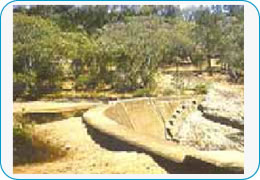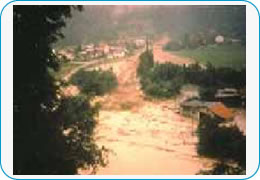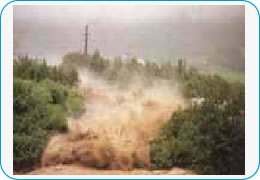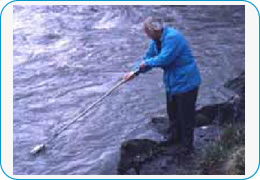|
Key issues addressed by the Steering Committee
· Summarizing the guiding principles and experiences as an outcome from the large river basins case studies.
· The elaboration of a glossary of erosion and sediment transport terminologies.
· Identifying stakeholders interested in erosion and sediment processes.
· Maximizing the extraction of information from the available data.
· The exchange of sediment data and information making use of UNESCO’s network and setting up the global database in IRTCES, China.
· Evaluating the environmental, economic and social value of sediment.
· Initiating training courses in local languages, supported by international experts.
· Providing an input about ISI matters into the next World Water Development Report.
Main Activities & Projects
(1) Global Evaluation of Sediment Transport (GEST Project)
GEST assesses the sediment budgets in river basins and estimates the total sediment load entering the ocean to create a global repository for data, information and documentation on soil erosion and sediment transport.
(2) Initiation of case studies for river basins as demonstration projects
Case studies will offer examples of monitoring and data processing techniques, procedures and methodologies for analysis of environmental, economic and social impacts, and evaluation of management practices.
(3) Setting up a global erosion and sediment information system
The information system would be comprised of at least three main components:
· Database to be generated from GEST and case studies.
· Global Sediment Portal with links to other data sources such as ICOLD, GEMS/Water, USGS, EOLSS, ICID, SedNet, publications, etc.
· Documentation on information development, showing how to extract information out of scarce, scattered and unreliable data, and instructions on how to set up sediment databases for river basins in different parts of the world.
(4) Review of sediment related research
Information on ongoing research is an important contribution to the operation of the databases and information systems; however the inadequacy of knowledge about various aspects of erosion and sediment phenomena hinders progress in addressing key sedimentation problems.
(5) Education and capacity building for sustainable sediment management
Identifying multiple modes of education to satisfy regional requirements and interests in different socio-economic and eco-hydrological settings is a medium term priority.
(6) Networking
Open to collaboration with all interested institutions, international, regional or national
associations, ISI aims to establish close working contacts with international, regional, and national projects, programmes, and networks, such as SedNet, GEOSS, NGOs, etc.
|




| |
|
 |
|
 |
|